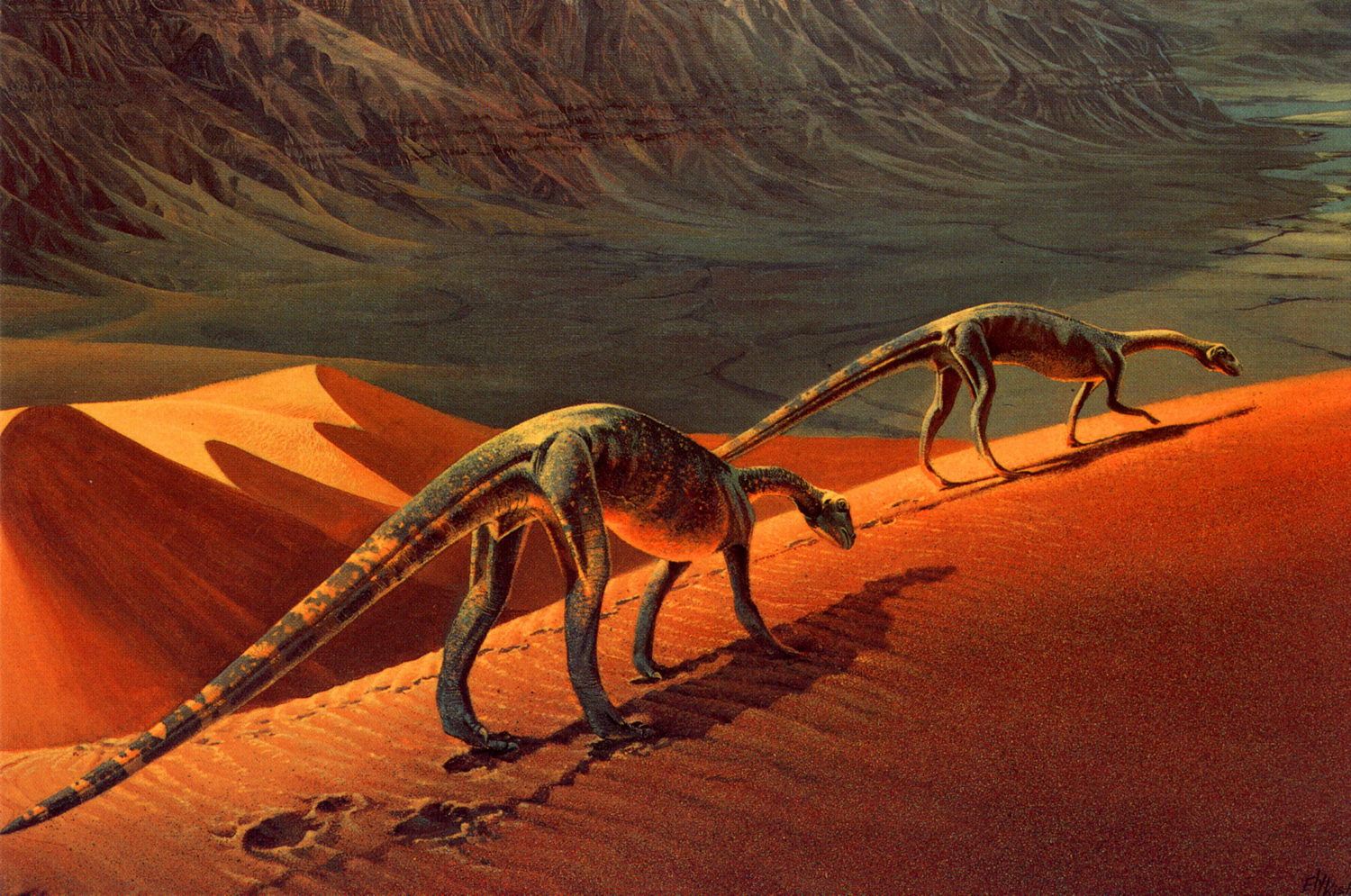We're open daily! View holiday hours
Science News
New Dino Discovered!
March 24, 2010

Scientists have described a new species of dinosaur found in the red rocks of Utah. Until now, Utah's red rocks were known only for a few scattered bones and dinosaur footprints. However, this discovery is of a remarkably preserved partial skeleton and is being published in today’s edition of PLoS ONE.
The skeleton was found in 2004 and belongs to a group of dinosaurs known as sauropodmorphs. Sauropodmorphs, small plant-eaters, lived across the globe in the Early Jurassic, approximately 175 million to 200 million years ago. Millions of years later, sauropodomorphs evolved into gigantic sauropods (think Brachiosaurus and Diplodicus), long-necked plant eaters whose fossils are well known from elsewhere in Utah, including Dinosaur National Monument.
The new dinosaur species is named Seitaad ruessi (SAY-eet-AWD ROO-ess-EYE), which is derived from the Navajo word, "Seit'aad," a sand-desert monster from the Navajo creation legend that swallowed its victims in sand dunes; and Ruess, after the artist, poet, naturalist and explorer Everett Ruess who mysteriously disappeared in the red rock country of southern Utah in 1934 at age 20.
In life, the animal would have stood about 3 to 4 feet tall at the hips and was 10 to 15 feet long. It would have weighed approximately 150 to 200 pounds and could walk on two or four legs. Although it was small, Seitaad was likely the largest herbivore in the area at the time.
This finding also confirms sauropodmorphs were successful during the Early Jurassic and hints at potentially more discoveries in the geographic area. According to the lead author of the study, Joseph Sertich, "This new find suggests that there may be more dinosaurs yet to be discovered in these rocks.”
Image reproduced courtesy of the Canadian Museum of Nature